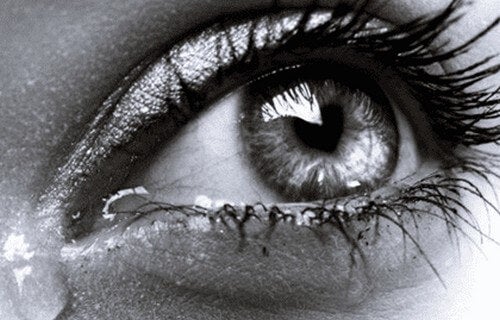Kama muta is a Sanskrit term that literally means “to be moved, filled with love or admiration. “
Experts say it’s the most intense universal emotion, because it defines that moment when we feel so full of affection, surprise or admiration for something or someone who soon appears the glow of tears.
- It is not easy to define this emotion with exact words.
- However.
- Many studies have looked at it to discover.
- Among other things.
- That it appears in all cultures.
- How they live it and what terms are used to describe it.
In our language, kama muta could translate as “feeling moved”. However, it should be noted that defining the term in this way is insufficient, since it connects with something deeper from the human being, both positive and res revulsive.
We cannot reduce it, for example, to a simple passion, because it transcends our own emotional relationships.
It is that moment when, suddenly, something wakes us up inside and kisses us at the same time, it is a brief feeling, but so intense that it remains in our memory.
Alan Fiske, professor of anthropology at UCLA (University of California, Los Angeles), points out that this is a social emotion, that is, kama muta does not appear in solitude.
It appears in relation to a fact, a person or a group of people who, as a result, inspire us, move us to the point of feeling chills, a knot in the belly and the shy itching of tears about to flow.
So let’s look at more details on the subject
“Kama muta could motivate people to come together to serve the poor and disadvantaged. It’s a kind of emotion that can lead us to more than just love: compassion?. – Alan Fiske-
See how a friend does something extraordinary for us. Follow the birth of a child or attend a wedding. Finding people we like that we haven’t seen in a long time, feeling proud of someone. Attend a conference, play, or concert and feel very inspired? All these elements are just a few examples of what defines this emotion, kama muta.
Recently, several universities have published a detailed and comprehensive study to demonstrate something interesting about this emotion that has been called kama muta.
In the 19 countries analyzed it is expressed and lived in the same way, in the five cultures analyzed this emotion is lived physiologically in exactly the same way:
These are all clearly physiological symptoms. However, scientists are increasingly interested in this kind of emotion because, in a way, they have never stopped studying it.
What makes human beings move?Is Kama muta a universal experience? The response seems positive.
Research on kama muta became popular two years ago. Organizations such as Kama Muta Lab, for example, periodically provide information as interesting as it is revealing.
Thus, one aspect that must be remembered first of all is the role that emotions play in the human being.
The same word? It comes from Latin and means movement. Everyone, whether it’s joy, joy, sadness, fear or anger, seeks to create a change in us. They want to give us information about an internal reality to shape a behavior, a reaction.
The kama muta also expects a reaction from us, but this reaction starts from a dimension that is as powerful as it is determining: love.
We can all be moved by something or someone; sometimes it’s for our pet, sometimes for our partner and even for a movie or a play. What moves us creates an emotional footprint that causes changes.
These changes can be simply feeling compassion and caring for this animal to care for it, passion for our partner or inspiration after this film or play.
We also face a universal experience, regardless of gender, culture, language or the country in which we live, we are all often moved by something or someone.
Feeling it isn’t just a positive thing. You could even say that it is necessary, because few emotions facilitate both the desire to connect, to get excited to start new things feeling this exciting mixture of admiration, hope, love and joy.
Kama muta is both well-being and inspiration; Few emotional impulses are more revealing in the human being, so it moved us something to the point of finding an intense, sudden and almost perfect happiness, a brief moment that heals and motivates at the same time.

